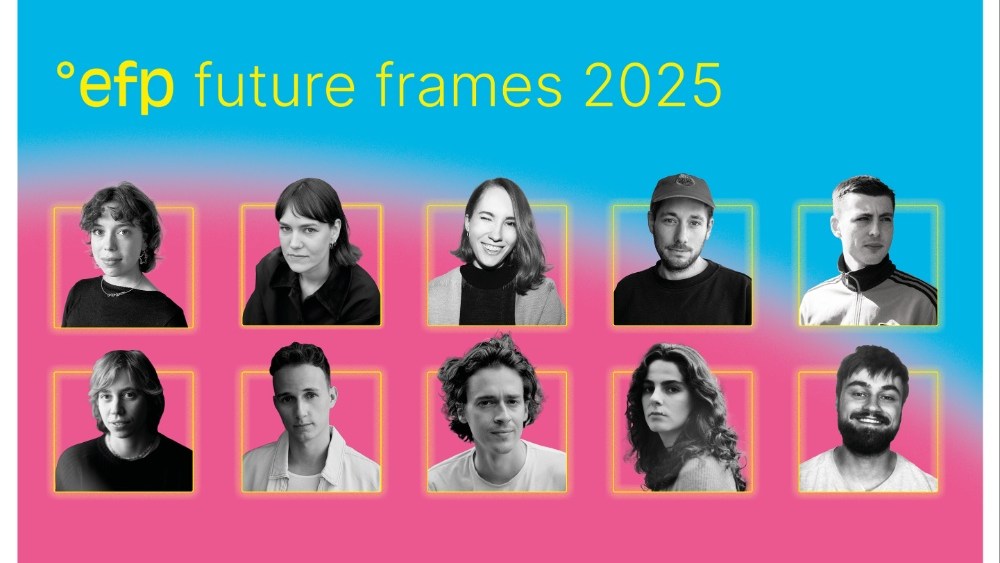Future Frames – Generation Next of European Cinema, a program that puts a spotlight on young European filmmakers, has revealed its selection for this year’s edition, which takes place next month at Karlovy Vary Film Festival.
The program is organized by European Film Promotion, and held in cooperation with Karlovy Vary and its partner Allwyn. It is supported by Creative Europe – the MEDIA Programme of the European Union.
The lineup is comprised of recent European film school graduates whose short films will be screening at the festival. They are nominated by their respective national film promotion institutes, EFP’s member organizations, and selected by Karlovy Vary’s artistic director, Karel Och, and his team.
The filmmakers will take part in a program of promotion and industry networking activities before and during the festival. In addition, Allwyn is offering a month-long scholarship in Los Angeles for one of the directors.
The filmmakers are Belgium’s Mila Ryngaert from Institut des Arts de Diffusion with “Karaokiss”; Czech Republic’s Terézia Halamová from FAMU with “Dog and Wolf”; Finland’s Veera Lamminpää from ELO Film School/Aalto University – School of Arts, Design and Architecture with “Fish River Anthology”; Germany’s Simon Schneckenburger from Filmakademie Baden-Württemberg with “Skin on Skin”; Ireland’s Ruairi Bradley from Institute of Art, Design and Technology with “We Beg to Differ”; the Netherlands’ Jetske Lieber from Netherlands Film Academy with “January”; Poland’s Dominik Mirecki from Warsaw Film School with “Son of Happiness”; Slovenia’s Jan Krevatin from Academy of Dramatic Art, University of Zagreb, with “Greek Apricots”; Spain’s Nausica Serra from ESCAC with “Dissection of an Incoherence in Crisis”; and Switzerland’s Sinan Taner from Zürcher Hochschule der Künste with “1:10.”
Two of the participants, Lieber and Mirecki, have transitioned from acting to directing: Lieber’s film “January,” a contemplative story about separation, relationships and self-discovery, received the KNF Award at the Netherlands Film Festival, while Mirecki’s “Son of Happiness,” which follows a single father helping his son with Down Syndrome fulfil his dream of becoming an actor, won best film at the Rare Disease Intl. Film Festival in Italy.
Schneckenburger’s “Skin on Skin,” which contrasts the harsh, cold reality of a meat factory with a tender queer love story, won the audience award at the Max Ophüls Preis Festival. Taner’s “1:10,” which examines the causes and consequences of violence through a conflict between two primary school children, earned a special mention at the Winterthur Intl. Short Film Festival. Lamminpää received the Risto Jarva Award at the Tampere Film Festival for “Fish River Anthology,” a philosophical puppet animation that reflects on the act of lining up at a fish counter.
Bradley has already garnered more than 13 awards for his documentary “We Beg to Differ,” which explores Northern Ireland’s underground car culture amid a mental health crisis. Among its accolades are an Oscar-qualifying win at the Galway Film Fleadh and nominations from the London Critics’ Circle and the Irish Film and Television Awards. The film is nominated for the European Film Awards.
Themes of relationships, fear, memory and the self-empowerment of younger generations are central to Ryngaert’s “Karaokiss” and Halamová’s “Dog and Wolf.”
Krevatin’s “Greek Apricots” portrays a couple brought together by their shared Macedonian roots on a quiet summer night. The film has screened at several festivals, including Go Short in the Netherlands and SEEfest Los Angeles.
Serra is interested in new perspectives on directing. In her film essay, “Dissection of an Incoherence in Crisis” she examines the impossibility of accepting the superiority of others in two everyday family scenes. For her observations, she gives the actors plenty of space for improvisation.
Read the full article here


